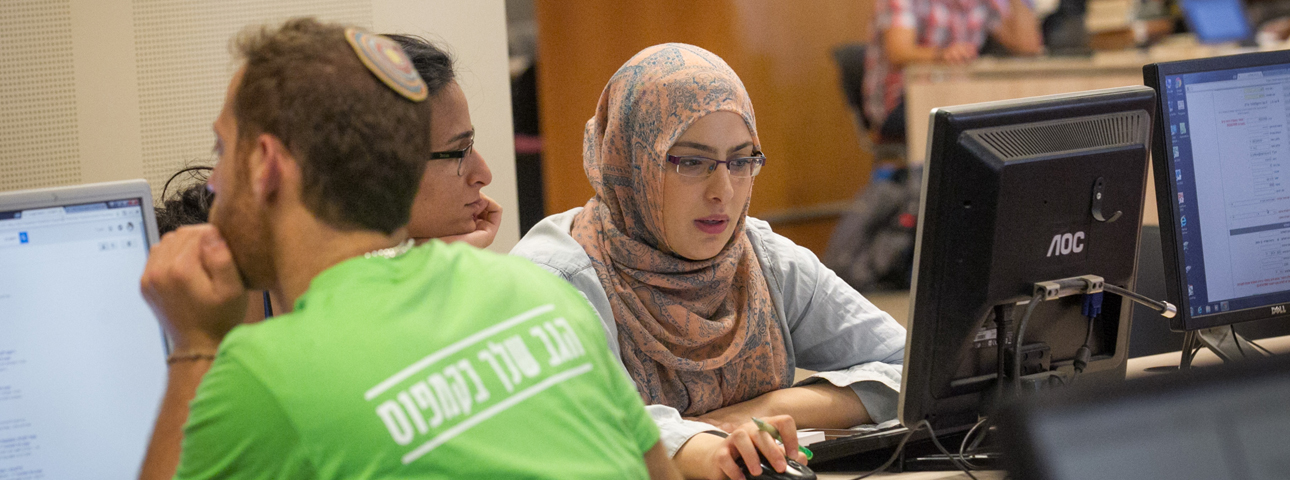Opportunities Now: Arab Employment in the Galilee
The north presents real opportunities for Israel’s society and economy. Turns out that the solutions have been in plain sight all along.

Recently published figures by the Manufacturers’ Association of Israel—Northern Branch, indicate a significant lack of skilled labor for factories in Israel’s north. This, despite the fact that the unemployment rate in the north is 8%, higher than in the center of the country. In addition, the Manufacturers’ Association found that around 80% of company owners in the north suffer from a shortage of skilled labor across a range of industries, particularly lacking in technicians, engineers, and machine operators.
This data clearly indicates a policy failure, given the fact that more than half the population of the northern region is Arab, and that young Arabs in particular are struggling to find employment. In a study I conducted with Dr. Sami Miaari, we found than more than a third of young Arabs aged 19 to 23 are neither employed nor in higher education. Most of these young men and women say that they cannot find work. The problem is particularly acute among women, around half of whom are in this situation. This demographic is commonly referred to by the acronym NEET, "Not in Education, Employment, or Training."
The tens of thousands of young Arabs who complete high school but then cannot find employment become a societal burden, and find it difficult to gain high-quality employment later on in life. In the past, much has been said about the many barriers Israeli Arabs face in their integration into the Israeli labor market, such as discrimination, the fact that many Arab towns are located in the periphery, limited access to good public transportation, lack of early childhood frameworks (which would allow mothers to work), and other factors. However, almost no attention has been paid to the transition of young Arabs from high school to the labor market or higher education. This, in spite of the fact that they are likely to face many difficult obstacles as they begin their working lives and embark on their journeys to adulthood.
We can, however, look at the current situation in the north as an opportunity for the Israeli economy, the country's industry, and Arab society. There is a convergence of interests here all pointing to the need for investment, especially in education for younger age groups. We need to invest in technological education in Arab towns, from high-school onward, and in Hebrew language studies, which will facilitate smoother integration into the general workforce, where most of the employees are Jewish.
Additionally, in order to enable more Arab women to go out and work, there needs to be investment in daycare centers for children, and industrial zones should be established close to Arab towns; or at the very least, the transportation infrastructure between Arab and Jewish towns in the north must be upgraded, with an emphasis on centers of employment. All these steps require long-term, systematic planning.
As for Arab society, it is imperative that it demand these changes, and push for them, instead of waiting for the state to act. Specifically, it is important that Arab women discard the flawed logic of working in jobs that are “good for the family,” such as teaching and education, and instead study subjects that will allow them to enter industry, hi-tech, and managerial positions. Otherwise, many of them will remain unemployed or forced to continue commuting five hours a day to teach in the Negev, where low-paying teaching jobs are in plentiful supply.
There is no doubt that the current employment crisis in the north is the result of faulty policy over many years. This flawed policy has been directed toward the Israeli population in general and the Arab population in particular. With regards to Israel's Arab sector, the government has sacrificed strategy in favor of a piecemeal tactic, putting out fires as they occur.
Increasing the participation and integration rates of Arabs in the Israeli labor market could enhance the social and economic resilience of Israeli society, stimulate economic growth, and drive development of the northern periphery. In addition, Arab integration will change the status quo of Israel's homogeneous labor market, a situation that weakens the multicultural characteristics of life in Israel, and thus harms both Jews and Arabs.
Finally, for young Arabs in the north, integration into the labor market is not merely a question of financial need, but a lifeline for the many who are in danger of drifting into crime or low-income jobs, and, in the long term, being condemned to a life of poverty. The current situation in the north presents a real opportunity for Israel’s society and economy. The time has come to stop searching for solutions when they have been in plain sight all along.
The author is co-director of the Arab-Jewish Relations Program at the Israel Democracy Institute.
